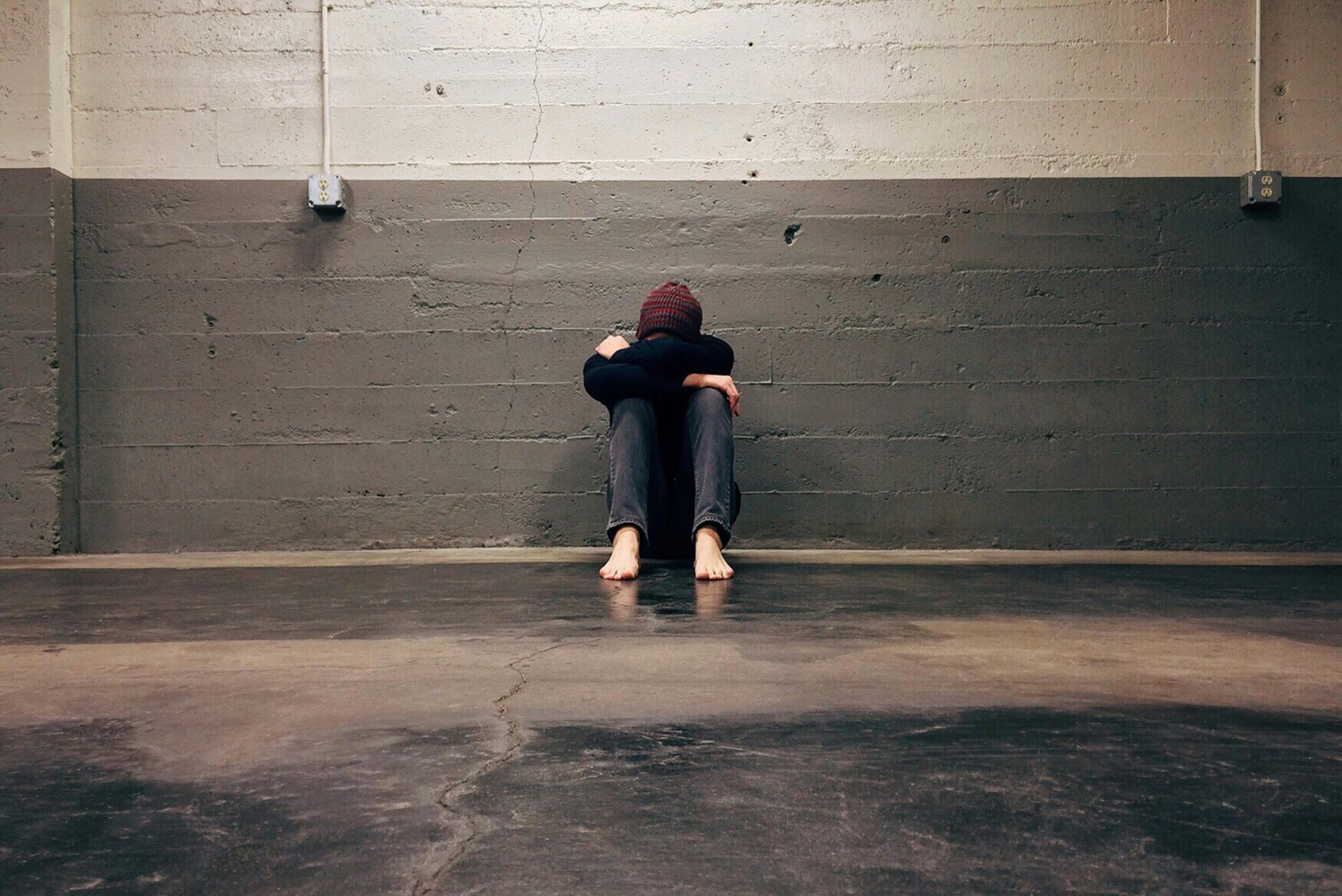According to the Depression and Bipolar Support Alliance, there are an estimated 21 million who struggle with depression in the United States. Depression is a debilitating disorder that affects every area of a person’s life. When dealing with depression, it’s important to get treatment as early as possible.
Understanding Personal Triggers
Most people who struggle with depression usually exhibit similar symptoms. These symptoms include continuous feelings of sadness, hopelessness, emptiness, and irritability. In addition to these emotional symptoms, there are also physical symptoms. Some of the physical symptoms of depression include changes in a person’s eating habits, weight, and insomnia. When someone struggles with depression, they might also struggle with sleeping too much. Cognitive symptoms include difficulty concentrating and making decisions.
While there are common symptoms of depression, there are also personal triggers that are unique to each individual. Identifying personal triggers is a helpful way to manage depression. Individuals can determine which situations or thoughts trigger their symptoms by identifying personal triggers. One way to keep track of your triggers is by keeping a mood journal to find patterns. If you don’t like using a physical journal, you can also use applications on your phone. There are some free applications that you can download to keep track of your mood.
Whenever you can identify your triggers and keep a record of them, it can be helpful to share them with your therapist. These records can help your therapist find the best tools to help you cope with depression.
Building a Support Network
When coping with depression, it’s imperative to have a support network. Maintaining socialization is important when you are coping with depression because loneliness can make depression worse. We understand that life can be busy, and it’s hard to stay in touch with everyone in your life. However, communicating with friends and family in your day-to-day life helps prevent your depression symptoms from worsening. It can also become easier to communicate once you have established a routine.

Another component of building a support network is joining support groups or group therapy organizations. These groups are a great way to cope with depression because they combine social elements with talk therapy. Individuals can look for organizations with group activities or sports organizations.
Establishing a Routine
Establishing a routine and staying organized is an important way to manage your depression. Depression causes people to have difficulty concentrating or remembering important things. By establishing routines, you can manage your time more efficiently. For example, you can create a morning routine that includes eating a nourishing breakfast and journaling. This morning routine can help you start your day on the right foot. You can create a night routine in the same way. Night routines can help you wind down and create better sleep habits. Having a structured daily schedule helps to increase productivity and decrease anxiety and depression.
When building your routines, it’s important to incorporate activities that promote well-being. Some examples of such activities are yoga, meditation, deep breathing, volunteering, reading, and breathing exercises. You can use these activities to break up your daily responsibilities.
Self-Care Practices
Self-care practices are important for coping with depression because people who struggle with it often struggle to take care of themselves. These practices can be anything that takes care of your emotional or physical needs.
Physical Self-Care
Regular exercise is a form of physical self-care because it keeps our bodies strong and healthy. In particular, exercise is one of the best ways to treat anxiety and depression. This is because regular exercise releases endorphins. Endorphins are chemicals in our brains that improve our sense of well-being. Another way to take care of your physical needs is to use nutrition to improve your health. Finding exercises that you enjoy helps incorporate movement into our daily lives. If you find that exercise feels like a chore or you dread it, you may want to find a different form. It could be a sport, dance class, or walking. Forcing yourself to partake in an exercise can cause additional stress on the body.
Our bodies (and brains) function best when we eat whole foods that contain vitamins, minerals, and antioxidants. These nutrients can also help our mental health. In addition to eating quality food, quality sleep is also important when dealing with depression. Some supplements might be appropriate to help with physical care. However, it’s important only to try supplements under a doctor’s care to ensure there aren’t any reactions to the medications.
To improve your sleep quality, you should focus on sleep hygiene. Sleep hygiene is a habit and environment we set up to improve our sleep. Below are some sleep hygiene tips that might be helpful for you to try:
- Maintain a sleep schedule
- Exercise regularly
- Try to avoid screen time before bed
- Create a relaxing night routine
- Limit naps during the day if possible
- Create a comfortable bed
- Avoid caffeine about 4-6 hours before bedtime
Emotional Self-Care

In addition to physical self-care, emotional self-care is also important when coping with depression. Emotional self-care includes practices such as mindfulness and relaxation techniques. Mindfulness is the practice of focusing on the present moment and being non-judgmental towards thoughts that may arise. Relaxation techniques are also helpful in maintaining emotional self-care when coping with depression. Some examples of relaxation techniques are meditation, progressive muscle relaxation, and yoga.
Creative outlets (such as art and music) can also be used as forms of emotional self-care. Music therapy and art therapy can be used alongside other treatment methods to express creativity. Creative expression is shown to help with depression and anxiety. Journaling can also be used as a creative outlet to express our feelings. We can use specific prompts that aim to help people process how they are feeling. Journaling is also a great way to keep track of your patterns of emotion more accurately. These records can be shared with your treatment team to provide them with insight into how you are feeling.
Cognitive Behavioral Techniques
Cognitive Behavioral Therapy is a type of therapy that teaches how thoughts and beliefs affect your feelings and behaviors. CBT involves a therapist helping the patient reframe their negative thoughts into more realistic ones. This is especially helpful for people dealing with depression. Depression is thought to have been caused by negative thoughts and beliefs. An example of a cognitive behavioral technique is using positive affirmations in daily life. Positive affirmations can help improve an individual’s self-esteem. People who struggle with depression often struggle with feelings of low self-worth. This means positive affirmations can potentially help improve these feelings of low self-worth.
Another cognitive-behavioral technique is setting realistic goals for life and recovery. Setting realistic goals helps us manage our expectations and prevent discouragement. It’s important to set goals with a specific timeline so that you can accurately track your progress.
Stress Management
Stress management is an important tool in coping with depression. Anxiety and stress can lead to worsening symptoms of depression. There are several ways to manage stress which allows people to find which one helps them most. Managing stress can be done through organization, learning to say no when needed, and time management. Time management strategies can also help when working through stress management. Managing our time will help us manage our anxious thoughts. Below are some examples of these strategies for managing stress:
- Time blocking
- Setting realistic goals
- Focusing on one task at a time
- Prioritizing important tasks
- Use planning tools or platforms
- Organize your space
- Avoid procrastination if possible
Relaxation techniques, such as deep breathing, meditation, and progressive muscle relaxation, can also be used as a form of stress management. Adding these practices to your life can help you find relaxation even during difficult times.
Another way to manage stress when coping with depression is balancing responsibilities with leisure activities. This helps manage stress because leisure activities can help break up the more stressful responsibilities.
Healthy Lifestyle Changes
Lifestyle changes have the potential to help people struggling with depression. For example, it can be helpful to limit alcohol and avoid substance misuse when dealing with depression. This is because alcohol and some substances can make symptoms of depression worse.
Another lifestyle change that can help people cope with depression is spending more time in nature. Spending time outdoors helps improve sleep, creativity, physical health, and overall mental health. You can also combine spending time outdoors with exercise, which can help you easily incorporate exercise into your life. Exercise helps improve mood, which can help with depression symptoms.
Pets can play an important role for someone struggling with depression. They can provide companionship and unconditional love. Pets also force us to be responsible for their care. This helps people with depression if they are feeling hopeless or without a purpose. There are so many pets available for adoption that need loving homes.
When Self-Help Isn’t Enough
Self-help practices are a great addition to treatment efforts, but sometimes, they aren’t a sufficient form of treatment, depending on the person’s symptoms. This does not mean there is anything wrong with the person. This just means they might need a higher level of support. If a person’s symptoms are still getting worse, professional help might be needed. Unfortunately, some stigmas prevent people from seeking therapy altogether. Through awareness and open conversations, we can help defeat these stigmas that prevent people from receiving the care they deserve.
Resources and Tools
In addition to the coping skills we listed today, there are also other tools that can be used for coping with depression. These tools include mobile apps for mental health, books, and other online materials for further reading. Here are some resources and tools to go through whenever you have time. Feel free to bookmark this page to revisit at a later time.
Mobile Applications:
Happify: Happify is an application that has science-based activities and games that help improve user’s mental health.
Calm: Calm is an application that provides meditation recordings in the form of stories that help users sleep.
Headspace: Headspace is an application that uses evidence-based meditation and mindfulness tools to help patients manage their mental health.
Books:
Feeling Good: The New Mood Therapy by David Burns: This book explains cognitive behavioral techniques (CBT).
The Upward Spiral: Using Neuroscience to Reverse the Course of Depression, One Small Change at a Time by Alex Korb, Ph.D.: This book discusses how small changes can lead to improvements in depression.
The Depression Cure: The 6-Step Program to Beat Depression Without Drugs by Stephen S. Ilardi: This book provides 6 lifestyle changes that can help relieve symptoms of depression.
The Mindful Way Through Depression: Freeing Yourself from Chronic Unhappiness by J. Mark G. Williams: This book teaches how mindfulness can be used to help cope with depression.
Change Your Brain by Dr. Daniel Amen: This book discusses changes (or brain prescriptions) that can be used to improve symptoms of depression.
Online Materials:
Mental Health America: https://mhanational.org/
Anxiety & Depression Association of America: https://adaa.org/
National Alliance on Mental Illness: https://www.nami.org/
Verywell Mind: https://www.verywellmind.com/
Child Mind Institute: https://childmind.org/
The Trevor Project: https://www.thetrevorproject.org/
National Eating Disorder Association: https://www.nationaleatingdisorders.org/
Depression is a common mental health disorder that affects millions of people across the world. The good news is treatment for depression is available. Along with evidence-based theories for depression, many coping skills can be used to relieve symptoms. We want to remind people struggling with depression to be gentle with themselves. Managing depression is an ongoing process that can take time to implement. If you or someone you love is struggling with depression, we encourage you to reach out to us today. We are here to help you break free from your depression. You deserve to live your life free of your depressive symptoms.
Online Therapy in Florida, Idaho, South Carolina, and Utah
At Calming Transformations Counseling, our therapists understand how difficult it can be to manage anxiety, stress, depression, and relationship issues. We can help through online therapy in Florida, Idaho, South Carolina, or Utah or walk and talk therapy in Hillsborough County, Florida. Book an appointment or contact us today to schedule a session and take the first step toward a healthier, happier life. Remember, your mental health is important—take the time to care for yourself.
